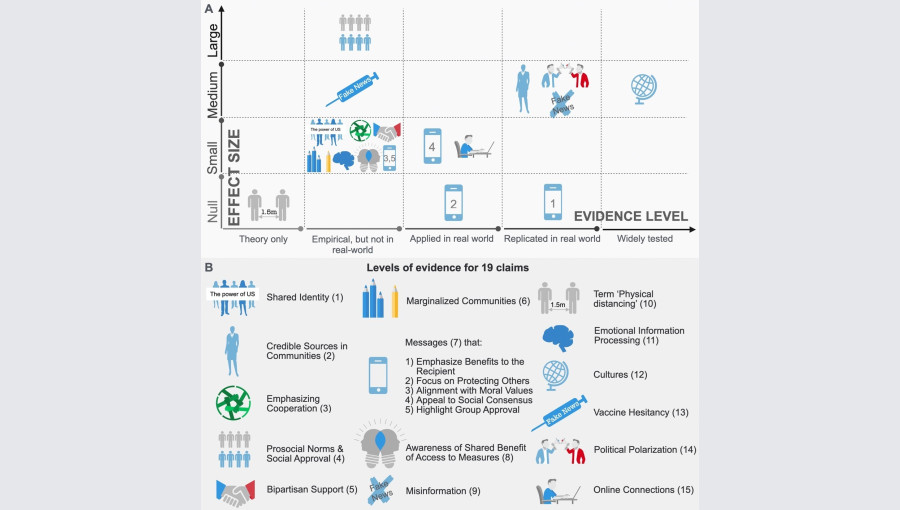How successful was psychology in policy-making during the pandemic?

Obi - @pixel8propix/Unsplash
Date of publication:
The COVID-19 pandemic had a profound effect on people's daily lives. Decision-makers had to make decisions and implement measures to curb the spread of the virus, which impacted many. Because similar situations are likely to occur again in the future, it is important to explore how psychology can help develop more efficient measures to curb the pandemic. This was the focus of the study, published in thejournal Nature and conducted by researchers from over 30 countries, including Dr Žan Lep from the Faculty of Arts, University of Ljubljana.
The researchers evaluated 19 claims (suggestion) detailing how evidence from behavioural science could contribute to efforts to reduce impacts and end the COVID-19 pandemic. For example, one of the claims stated: "Fake news, conspiracy theories, and misinformation will have a negative effect on vaccine hesitancy".
From the initial pool of over 3,000 documents, the authors reviewed 747 papers looking into the thinking and behaviour of people from 142 countries worldwide (on average, each paper sampled nearly 17,000 people). They were interested in whether the empirical studies offer evidence supporting the claims and how efficient the suggested measures could be in real life. They found sufficient evidence for 18 out of the 19 claims. The strongest evidence was related to cross-cultural differences (e.g., in cultures accustomed to prioritizing freedom over security, it is more difficult to coordinate in the face of a pandemic), the importance of reducing polarization, and misinformation's impact. The adherence to the measures is higher if credible leaders implement them if decision-makers focus on existing societal expectations (norms) regarding protective behaviour, and if they highlight the bipartisan support and agreement with the measures.
The authors of the study, coordinated by Dr Kai Ruggeri from Columbia University, presented a novel and rigorous way to synthesize evidence for policy. They stress its utility in future public health emergencies, pandemics, extreme weather, climate change-related disasters, etc.
They also call for more field studies, including practitioners in research, and implementing safeguards to separate scientific and unscientific claims in times of crisis. The paper concludes with several suggestions for science and policy-makers on how psychology can be helpful in developing public policy in extraordinary times.
You can read more about the study here: https://www.publichealth.columbia.edu/news/large-study-presents-evidence-behavioral-sciences-policymaking
The paper, published in open access, is accessible on the link below: https://www.nature.com/articles/s41586-023-06840-9
Reference: Ruggeri, K., Stock, F., Haslam, S.A., … Lep, Ž. … Van Bavel, J. J., & Willer, R. (2024). A synthesis of evidence for policy from behavioural science during COVID-19. Nature, 625, 134–147. https://doi.org/10.1038/s41586-023-06840-9

